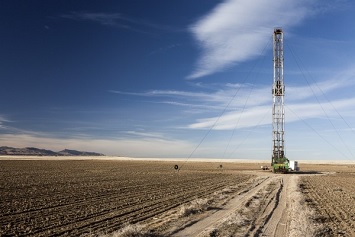Judge Terry Doughty of the U.S. District Court for the Western District of Louisiana issued a preliminary injunction on June 15, 2021, blocking the Biden administration from continuing to enforce its moratorium on new oil and gas leases on public lands.
“Doughty said that the administration cannot stop leasing without congressional approval and that the fossil fuel-producing states that sued to challenge the Interior Department’s policy have ‘demonstrated a substantial threat of irreparable injury,’” according to The Washington Post.
In one of his first acts upon taking office, President Joe Biden directed the Interior Department to suspend the leasing program. This act, along with rescinding the Keystone XL permit and suspending drilling leases in Alaska’s Arctic National Wildlife Refuge, was a key piece in the president’s climate change battle plan, The Washington Post says. Curbing oil and gas development and seeking more funds for leasing on public lands are essential pieces of Biden’s plans to lessen U.S. dependance on fossil fuels.
“Interior Department officials had said the leasing hiatus would allow them to conduct a comprehensive review of how the leasing program works and to identify improvements,” adds The Washington Post. “One of the key issues is whether to increase royalty rates for drilling onshore; those rates have been the same for a century. An interim report on the program is expected this summer.”
“Although there is certainly nothing wrong with performing a comprehensive review, there is a problem in ignoring acts of Congress while the review is being completed,” Doughty wrote in his ruling, The Washington Post says.
The lawsuit, State of Louisiana et al v. Joseph R. Biden Jr. et al., was filed in March by Louisiana Attorney General Jeff Landry on behalf of the states of Louisiana, Alabama, Alaska, Arkansas, Georgia, Mississippi, Missouri, Montana, Nebraska, Oklahoma, Texas, Utah, and West Virginia, according to the Associated Press. Wyoming filed a separate suit to lift the stay on leasing.
“The 13 states that sued said the administration bypassed comment periods and other bureaucratic steps required before such delays can be undertaken, and that the moratorium would cost the states money and jobs,” the Associated Press adds. “Federal lawyers argued that the public notice and comment period doesn’t apply to the suspension, that the lease sales aren’t required by law and that the Secretary of the Interior has broad discretion in leasing decisions.”
Doughty’s decision applies to onshore and offshore leasing nationwide. “Millions and possibly billions of dollars are at stake,” Doughty wrote, according to Reuters. He added the states’ lawsuit had a “substantial likelihood of success.”
“‘Local government funding, jobs for Plaintiff State workers, and funds for the restoration of Louisiana’s Coastline are at stake,’ [Doughty] added, alluding to a possible loss of oil and gas revenue that pays for Louisiana efforts to restore coastal wetlands,” according to the Associated Press.
“The federal leasing pause is harmful to our nation’s national security, environmental progress and economic recovery,” American Petroleum Institute (API) Vice President of Upstream Policy Kevin O’Scannlain says in a statement. “We are pleased to see the court ruling that natural gas and oil leasing must resume on federal lands and waters, and we urge the administration to move expeditiously to follow the court’s order and lift the federal leasing pause. Now is the time for the administration to put an end to this ‘import more oil’ policy that threatens American jobs and deprives state and local communities of much-needed revenue, all while likely increasing emissions and the risks of climate change.”
Environmental groups obviously oppose the decision.
“The Center for Biological Diversity environmental group said in a statement the order ‘turns a blind eye to runaway climate pollution that’s devastating our planet,’” Reuters notes.
The Department of the Interior issued a statement saying it will comply with the judge’s decision but did not say when leasing will resume, says PBS.
“The Interior Department continues to work on an interim report that will include initial findings on the state of the federal conventional energy programs, as well as outline next steps and recommendations for the Department and Congress to improve stewardship of public lands and waters, create jobs, and build a just and equitable energy future,” says Melissa Schwartz, Interior Department communications director, according to PBS.

